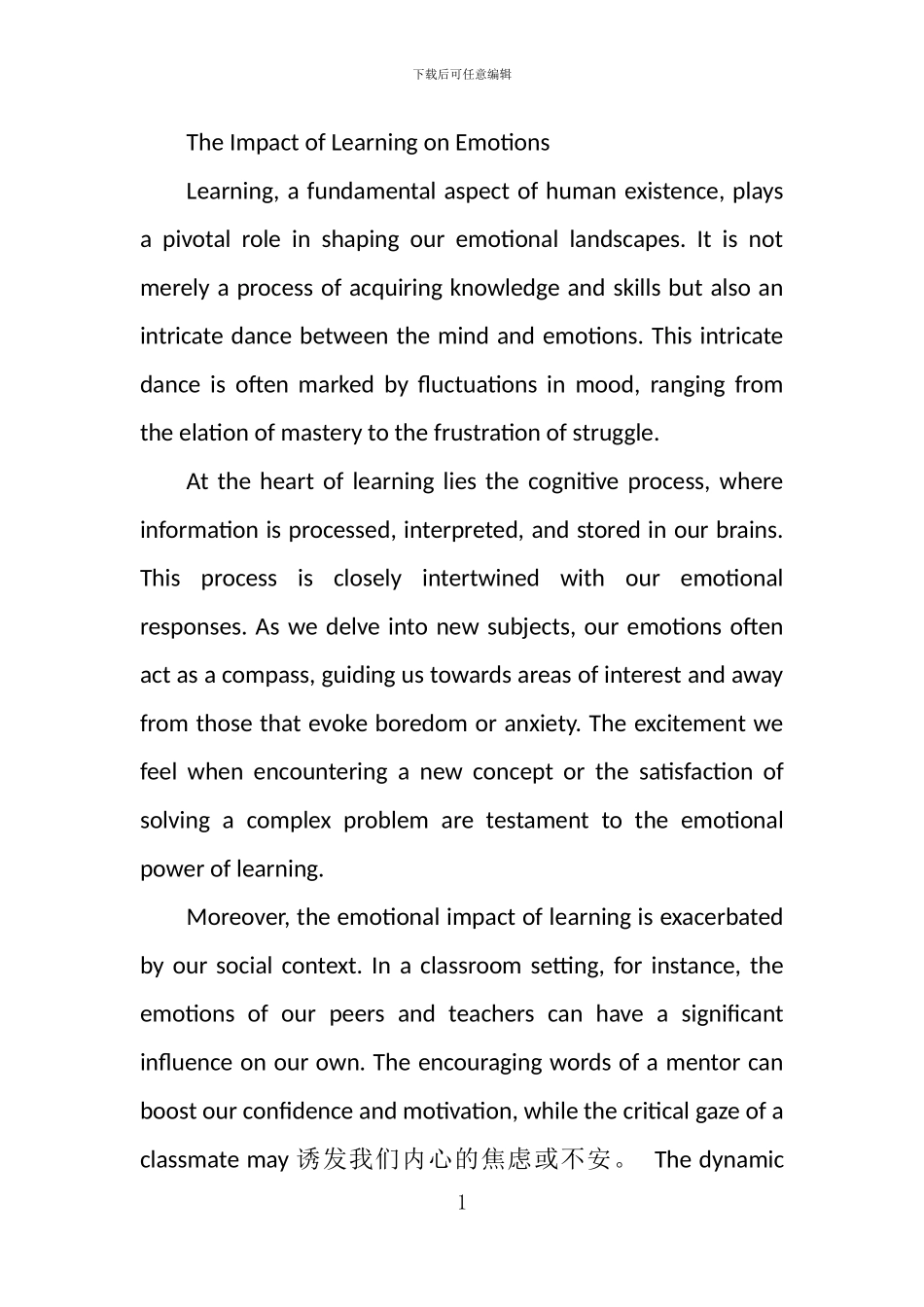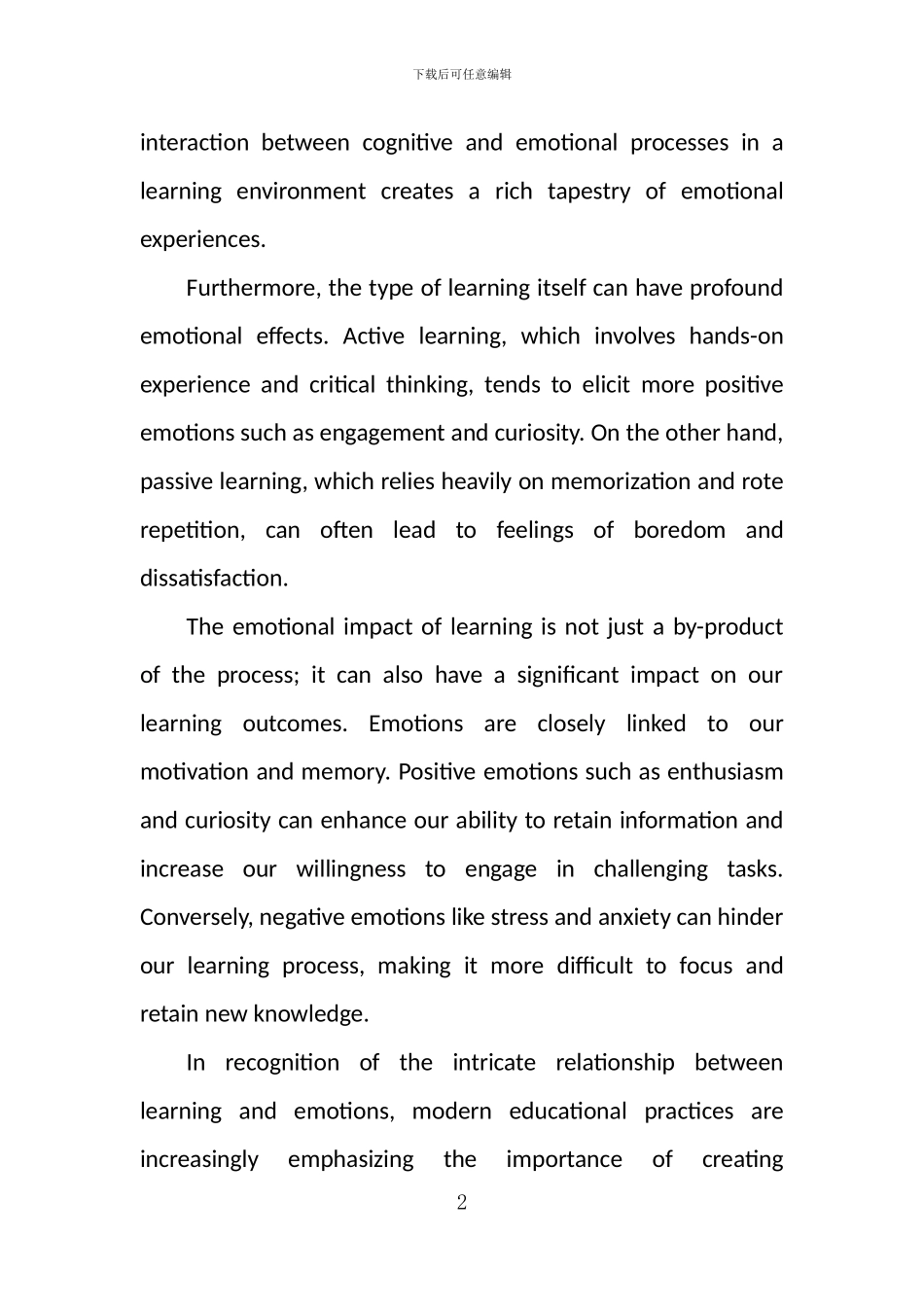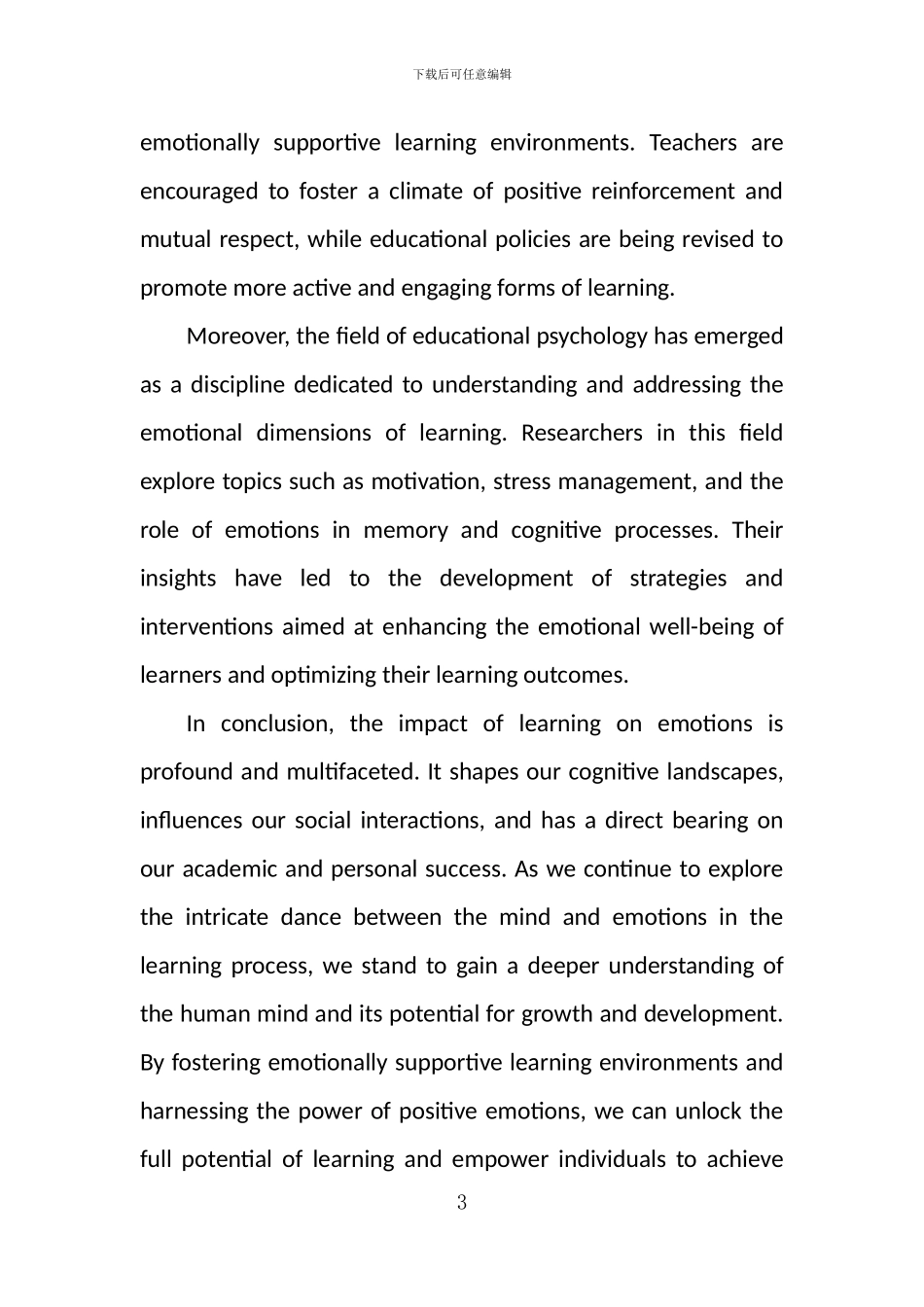下载后可任意编辑The Impact of Learning on EmotionsLearning, a fundamental aspect of human existence, plays a pivotal role in shaping our emotional landscapes. It is not merely a process of acquiring knowledge and skills but also an intricate dance between the mind and emotions. This intricate dance is often marked by fluctuations in mood, ranging from the elation of mastery to the frustration of struggle.At the heart of learning lies the cognitive process, where information is processed, interpreted, and stored in our brains. This process is closely intertwined with our emotional responses. As we delve into new subjects, our emotions often act as a compass, guiding us towards areas of interest and away from those that evoke boredom or anxiety. The excitement we feel when encountering a new concept or the satisfaction of solving a complex problem are testament to the emotional power of learning.Moreover, the emotional impact of learning is exacerbated by our social context. In a classroom setting, for instance, the emotions of our peers and teachers can have a significant influence on our own. The encouraging words of a mentor can boost our confidence and motivation, while the critical gaze of a classmate may 诱发我们内心的焦虑或不安。 The dynamic 1下载后可任意编辑interaction between cognitive and emotional processes in a learning environment creates a rich tapestry of emotional experiences.Furthermore, the type of learning itself can have profound emotional effects. Active learning, which involves hands-on experience and critical thinking, tends to elicit more positive emotions such as engagement and curiosity. On the other hand, passive learning, which relies heavily on memorization and rote repetition, can...


